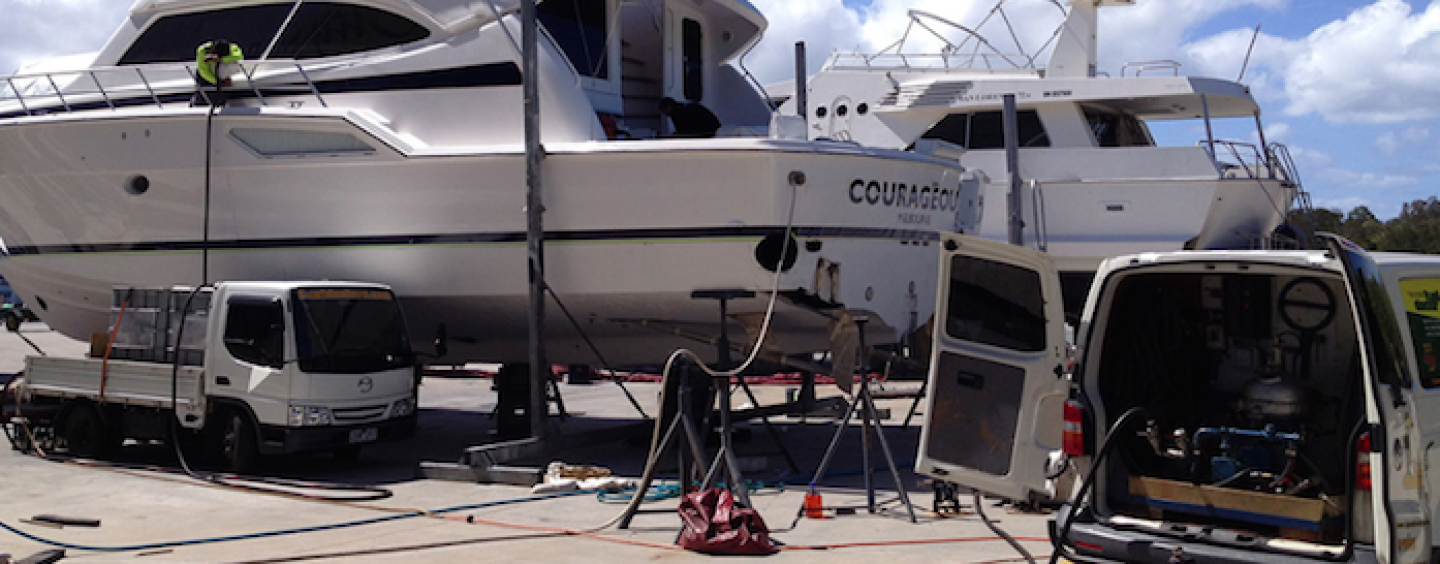With twenty-four years of industrial and commercial fuel tank cleaning under their belt, Fuel Doctors have seen it all when it comes to the contaminants that arrive with bunkered fuel, and the contaminants that germinate within fuel storage systems, especially in boats.
The main culprit to ruin your day with poor performance and the dreaded blocked fuel filter is that unwelcome Latin parasite Cladosporium Resinae. This parasite feeds on your fuel and can cost you thousands of dollars due to blocked fuel filters, as well as catastrophically damaging fuel pumps and injectors, combined with the excruciating financial pain of cleaning fuel tanks that were never engineered or designed with access for cleaning.
All boat fuel systems are continually at risk of contamination due to the very environment they operate in. Cladosporium Resinae (clad) is the result of air-borne soil spores that are attracted to hydrocarbon fuels entering the fuel system via vents. Any surface area not covered by fuel in a fuel tank will heat up during the day, expand and exit the vent; at night, the opposite takes place with the tank sucking in the spores and moisture in the form of condensation.
The spores remain dormant in the fuel and will only germinate in the presence of water, from which they derive oxygen for germination. Once germinated, they convert minerals and trace elements in the fuel to yeasts from which they feed and excrete. Clad, being the same family as brewer’s and baker’s yeasts, thrive on heat. Diesel engines return up to five litres a minute to the fuel tank at 80 to 120 degrees centigrade, creating the perfect environment for colonies of fungal material to thrive and grow into dense sticky mats.
The majority of fair weather sailors never encounter clad. However, those who venture into the big swells can tell you stories of changing blocked fuel filters, while being thrown around a stinking hot engine room with the vessel at the mercy of prevailing winds and current, and while she who must be obeyed vents her absolute anger and distrust in you, your boat and your lack of preventative maintenance.
Fuel contamination issues are mostly addressed by administering chemicals into the tank to fix the problem, or having someone come and polish your fuel.
Clad feeds from the hydrocarbons that are your fuel. 99.9% of the additives that claim to fix your problem are hydrocarbon-based. Consequently secondary hydrocarbons added to your tank are going to give clad an entrée or dessert to continue multiplying. The fuel-polishing scenario is also a marketing ploy.
The facts: Water weighs 1 kg per ltr, Diesel 840 grams, Petrol 740 grams and Clad 1 Kg per cubic mtr. Physically, clad is similar to fairy floss, extremely light and sticky, so it sticks to the walls, baffles and floor of your tanks. Hydrocarbon-based additives feed him and make him worse. Polishing entails suction and return via a filter bank into your tank. When out in swells, clumps of clad get washed into the fuel (diesel and petrol) with a portion entering your fuel filter. When moored, there is no agitation within the tank; consequently, clad reattaches its sticky slimy mass back on the walls, baffles and floor where it is now inaccessible to the polishing media. Ultimately, the only thing that has been polished is your wallet.
Fuel Doctors’ twenty four years of daily combat with Cladosporium Resinae ensures you get the ultimate best advice, service and in-house developed chemical solutions.
Go green and keep your fuel clean with Fuel Doctor.
www.fueldoctors.com.au






























